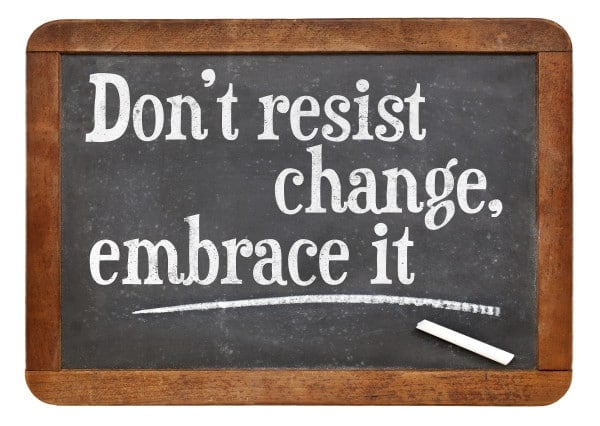


 6:31:14
6:31:14  2023-04-29
2023-04-29  1261
1261

Everything is constantly changing, we are all getting a little older and more experienced at work, and our organizations are constantly facing new and different challenges with clients, suppliers, employees and many other stakeholders, we try to make budgets and expectations for what will happen in our companies, but reality is often Different, nothing seems to remain the same in practical life, and the thought of the Business School seems to accelerate this by promoting the need for institutions to evolve and change.
Humans don't seem to like change and the majority of people I work with actually hate leaving the status quo out of their comfort zones. New bosses, new systems, new products and new customer demands can often be met with resistance, and this can have any number of negative effects. On the job, from disputes and stress to delays and angry clients.
Changes can be any amount, and people will still respond to it in the same way, either they are against change or more open to change, one of my old colleagues used to get angry when our company canteen changed the menu without warning, not surprisingly, he would sometimes get very angry When larger changes affect him at work.
Truly successful people at work have learned to accept and embrace change and to go with the tide of changes in their work environment. They seem to understand that change is inevitable and do not want to lag behind others. at their place of work.
Much of how we deal with change has to do with how we think and how we choose to respond to new or different information. You can always notice that colleagues who have gone through a lot of varied changes in their careers - no matter how grey-haired they may be, seem to respond more. Calm down, be more contemplative, and listen well when changes happen to them or around them.
The following strategies will help you act in those more mature ways about any kind of change you encounter in your business.
Understand the stages of dealing with change
There seems to be a predictable process that people go through when faced with any kind of change in their workplace and having to deal with it. This process can be compared to the stages of grief upon the death of a loved one. The process usually begins with a state of denial, then upset and anger before resistance and finally acceptance. Be prepared to understand that you and those you work with may respond to change by being ostensibly stuck in any of these four stages:
1- Ignore and deny: Some people seem to (put their heads in the sand) and try to act as if no change is being proposed or is actually happening. This can become a bad habit for some people.
2 Anger and annoyance, have you ever been annoyed when something changed around you? Some people can become highly sensitive and hold on to such irritation and anger, this can really affect their ability to be objective and level-headed.
3- Conflict and Resistance: Some people openly oppose changes while others may seem to support them in public but still resist, being too slow to help implement their part in any change for example.
4- Adaptation and Acceptance: This is the ideal stage, which one hopes everyone can reach as quickly as possible and avoid getting stuck in any of the three previous stages.
Reality Of Islam |
|

A newly dev

Get ready f

Researchers

A new metas
 9:3:43
9:3:43
 2018-11-05
2018-11-05
10 benefits of Marriage in Islam
 7:5:22
7:5:22
 2019-04-08
2019-04-08
benefits of reciting surat yunus, hud &
 9:45:7
9:45:7
 2018-12-24
2018-12-24
advantages & disadvantages of divorce
 11:35:12
11:35:12
 2018-06-10
2018-06-10
 6:0:51
6:0:51
 2018-10-16
2018-10-16
 8:19:41
8:19:41
 2018-06-21
2018-06-21
 7:34:7
7:34:7
 2023-02-28
2023-02-28
 11:2:27
11:2:27
 2022-10-06
2022-10-06
 7:26:19
7:26:19
 2022-04-08
2022-04-08
 11:11:59
11:11:59
 2023-02-01
2023-02-01
 8:25:12
8:25:12
 2022-03-09
2022-03-09
 11:34:48
11:34:48
 2022-06-29
2022-06-29
 5:41:46
5:41:46
 2023-03-18
2023-03-18
| LATEST |